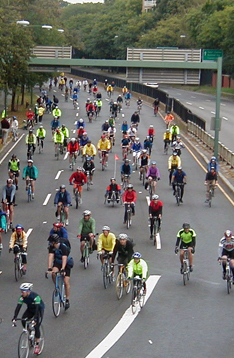Changes in the Mediterranean
In a followup to a report by the BBC earlier this week on bicycle sales in Italy surpassing auto sales, Martha White of TIME tuned in with some further reaching reports from other parts of the world. TIME reports that in parts of Europe where the economic crisis has hit most severely the populace has turned to bicycles over cars; especially in Greece. Whereas the numbers in Greece may not be as staggering as the reports in Italy, the number of cars on the road in Greece has dropped by some 40% and bicycle sales have risen 25%.
One can only imagine how much less traffic that makes.
In the UK
In terms of traffic, recently in the UK a 12 year old young man successfully put together a petition of over 700 signatures requesting bike lanes in his town. He says he only wants to be able to get to school without being knocked off his bicycle by aggressive traffic. The municipal authorities say they will support him completely.
It’s not just a rumor
And to top it all off, The Economist reports that developed world may have reached “peak car”, the point where “car ownership and vehicle-kilometres driven may be reaching saturation,” meaning that there aren’t going to be much more cars than this – and maybe fewer over time. In these countries trends from fewer trips by car – and those that are taken are shorter; to thousands of vehicles remaining left unsold each year point to a sea change in transit.
Could this be attributed to the economic situation in the world? One may think so, and a great part of it is, on the other hand – this isn’t new. The data trends started changing around year 2000 and most drastically after 2004. And more so, an entire generation is getting their licenses later, if at all. The car is not the status, or coming of age symbol it once overtly was – now it is simply a tool.
Up and Coming
Car sales in the developing world are increasing, putting stress on infrastructure that did not evolve at the same time as the automotive trends. Automobile sales in China surpassed those in the U.S. in 2010-11. In the developing world some cities, such as Shanghai, as well as cities in India and the Middle East are already building mass transit systems. This rapid response for mass transit construction is due to cities reaching the “sprawl wall” (where commutes get to be too far and city growth does not much extend past this) comparatively earlier in their development than Western cities at the same development point. All of this may be attributed to these cities in the developing world coming of age in a time after cars have become prevalent throughout the world, whereas the cities of the west were re-engineered to accommodate automobiles.
Cars are still the main transit method in rural places in the developed world. Suburbs are transforming as metro areas meet their sprawl walls. More and more of the world’s population lives in cities. The economic sense of other transit forms it more demonstrably observable.
From The Economist:
“America built 64,000 kilometres (40,000 miles) of interstate highway to get the country moving after the second world war; since 1980 it has built more than 35,000 new lane-kilometres a year. If policymakers are confident that car use is waning they can focus on improving lives and infrastructure in areas already blighted by traffic rather than catering for future growth. That is already happening in London, where cars pay to enter the centre and ever more space is dedicated to buses and cycles. At Canary Wharf, a business district in east London, 100,000 jobs are supported by only 3,000 parking spaces.
“By improving alternatives to driving, city authorities can try to lock in the benefits of declining car use. Cars take up more space per person than any other form of transport—one lane of a freeway can transport 2,500 people per hour by car, versus 5,000 in a bus and 50,000 in a train, reckon Peter Newman and Rob Salter of Curtin University in Australia.”
Less traffic sounds nice. More bike lanes and cycle tracks? Changing how we move is looking more and more like an economically healthy choice as well as a physical benefit. How do you want to see transit look like where you live?



Perhaps one of the the primary reasons for the bicycle growth in Europe and in particular, Greece, is the fact that the majority of the population is unemployed, living on the dole from their government, demanding free stuff and thereby are unable to afford an automobile and its upkeep.
The Economist goes into much greater detail about the economic particulars in their article, and in other articles about the European economic situation, than I did here. Perhaps being reminded of how useful and affordable bicycles are is a good thing for all of us, even if it comes from such trying times.